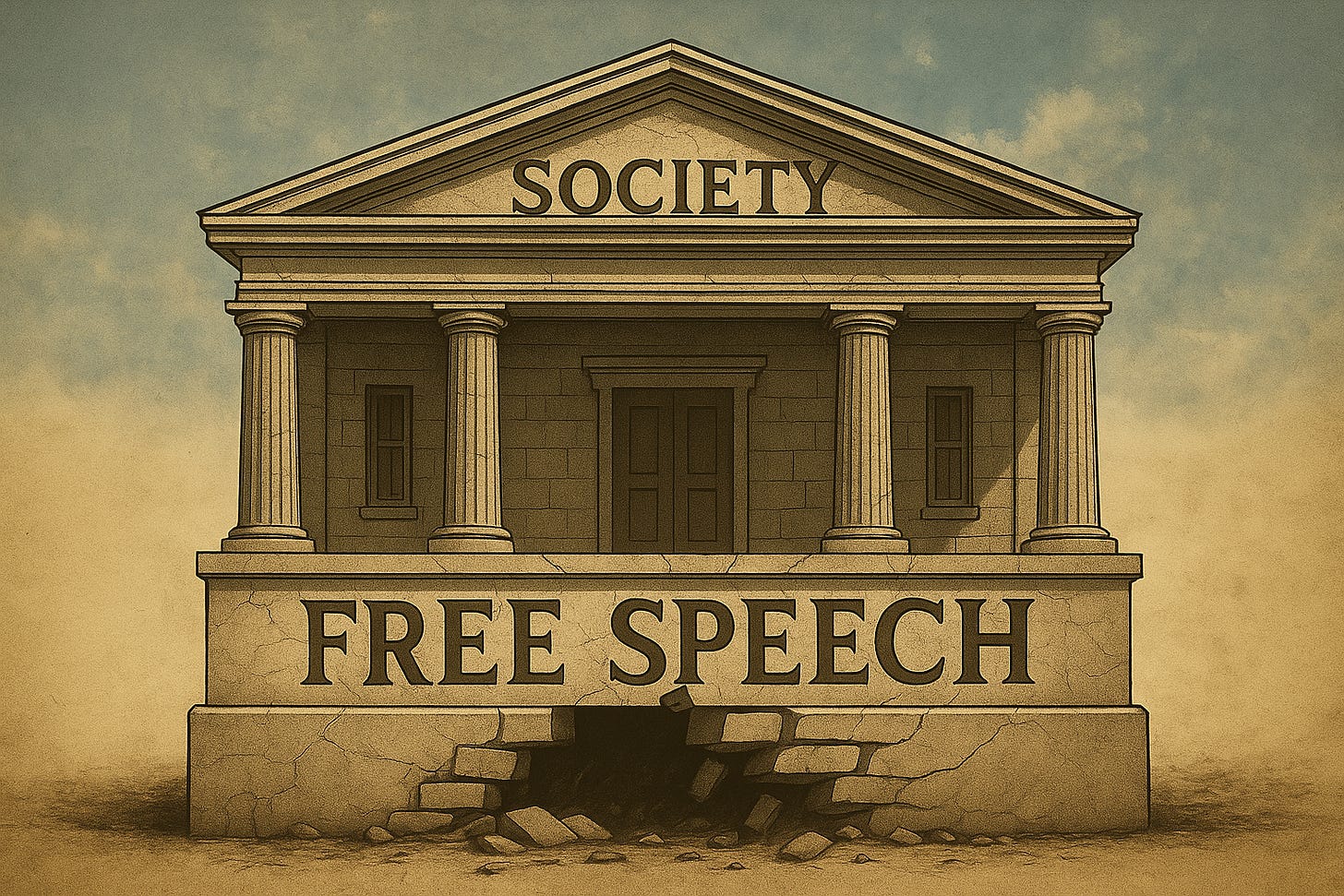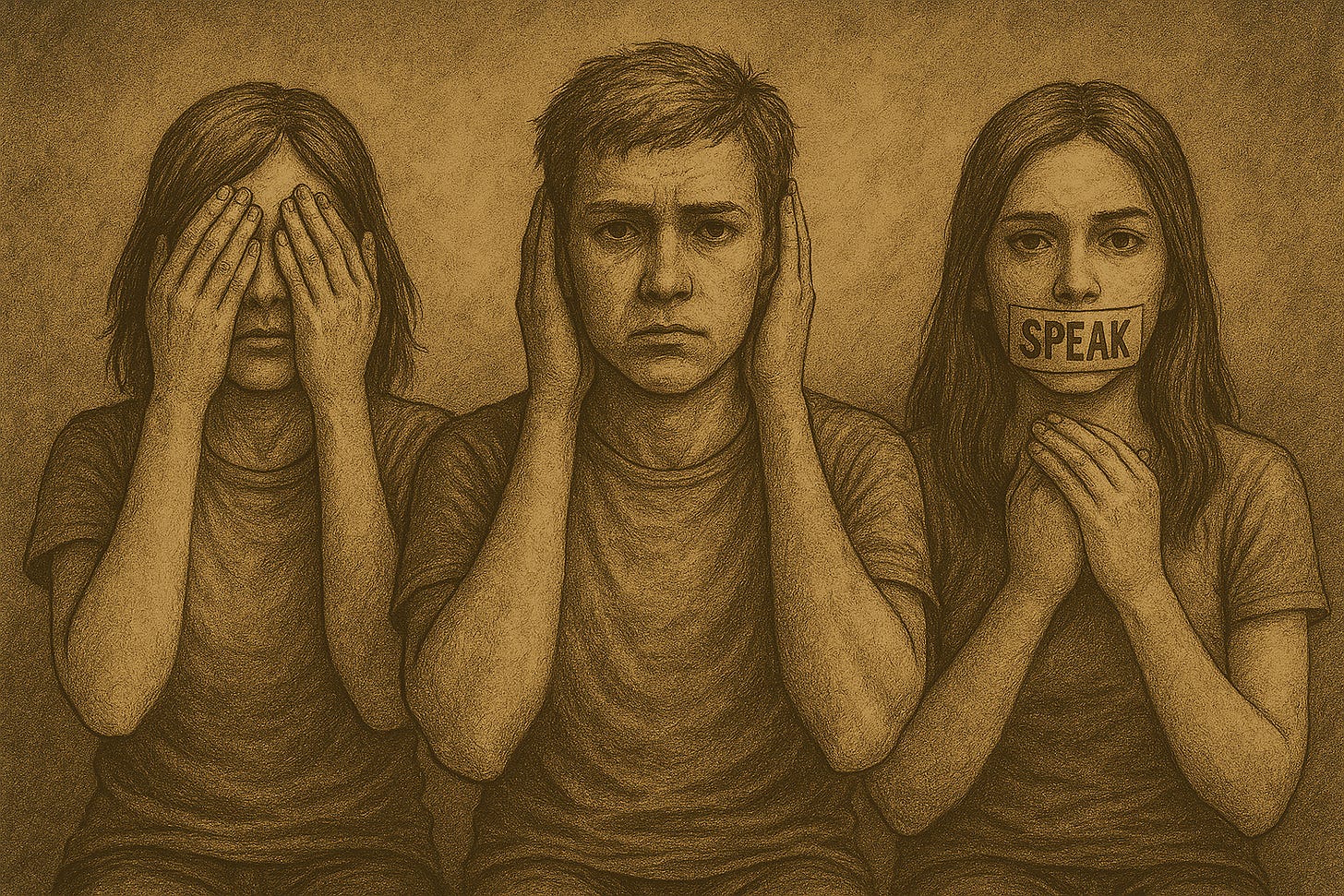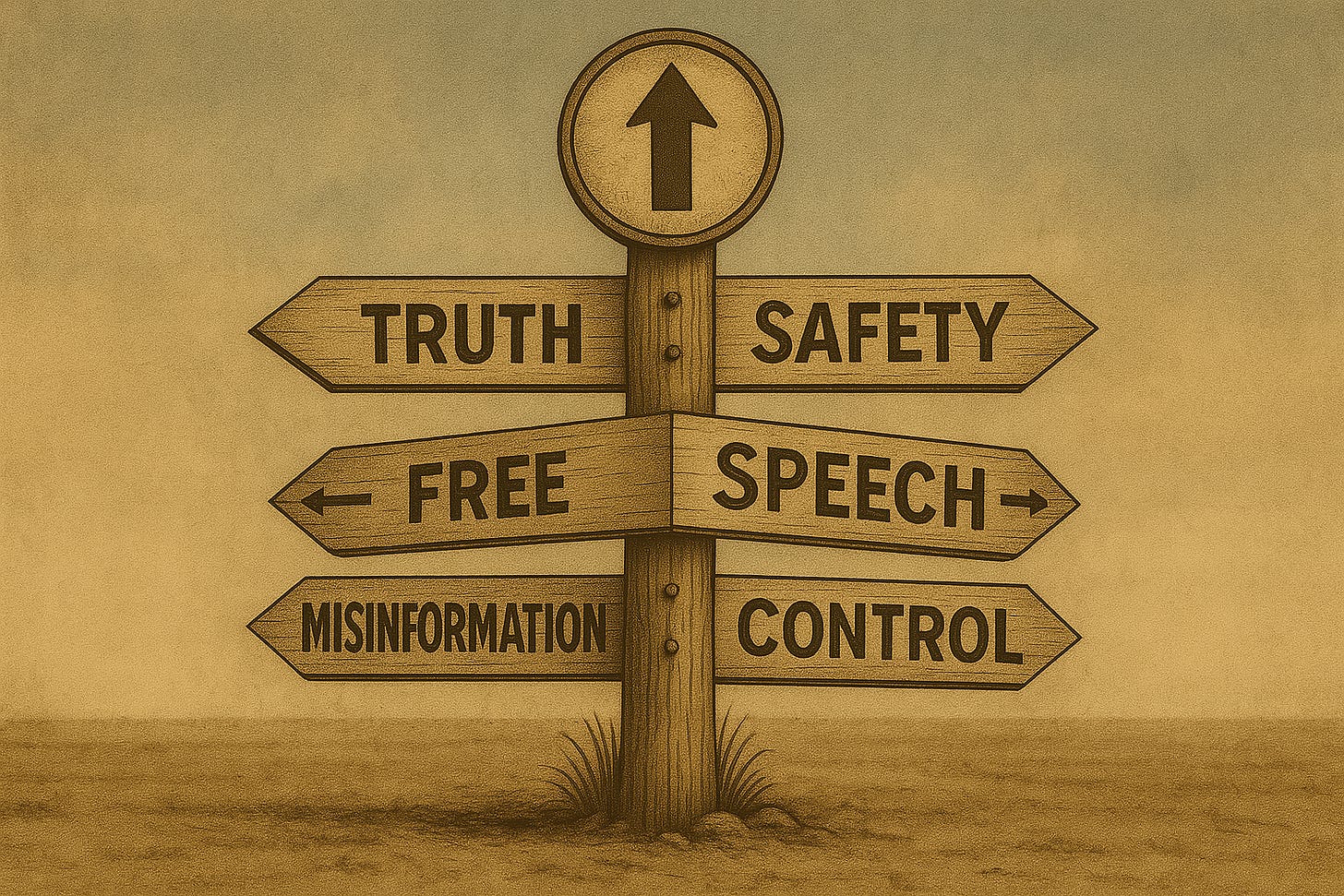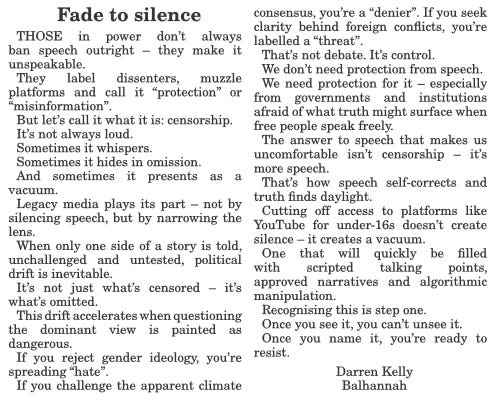Blurred Lines
It starts with language — it ends with silence
There was a time when the test of a free society was what you could talk about. Now, it’s measured by what you can’t.
Entire topics are quietly marked as untouchable. Not by law — but by stigma, threat, or “fact-check.” Israel. Climate. Vaccines. Gender. Immigration. Elections. If you question the wrong thing, you’re no longer debating — you’re “denying.”
If you reject gender ideology, you’re spreading “hate.”
That’s not debate. It’s control.
And it’s always sold as safety. Keep the kids safe. Keep communities safe. Keep feelings safe.
We’re told it’s about protection. But what it protects most is the story they want told — the narrative.
We see it clearly in the push to ban social media for under-16s — now once again including YouTube. Take away access to information and you don’t get silence — you get a vacuum.
A vacuum soon filled with government-sanctioned messaging, fed through schools, apps, broadcasters and algorithms — pure programming funded by taxpayers.
Cut off access to open conversation, and what fills the void isn't silence — it's scripted and controlled speech.
But it’s not just speech that’s being suppressed — it’s truth itself.
We’re told facts are fluid, language is flexible, and truth depends on subjective experience. Objective reality is no longer allowed to stand on its own.
The lines get blurred until they’re no longer visible — and then we’re told there were never lines at all.
Those in power don’t always ban ideas outright — they make them unspeakable.
Label the dissenters. Muzzle the platforms. Call it protection. Call it misinformation. Call it safety. Just don’t call it what it is: censorship.
We’re not banning speech — we’re just making it unspeakable.
And all the while, legacy media plays its part — not by silencing speech, but by narrowing the lens. When only one side of a story is told, unchallenged and untested, political drift is the inevitable outcome. It’s not just what’s censored and stigmatised that shapes the narrative — it’s what’s omitted.
We don’t need protection from speech. We need protection for it — especially from governments and institutions afraid of what truth might surface when free people speak freely.
The answer to speech that makes us uncomfortable isn’t censorship — it’s more speech. That’s how speech self-corrects and truth breaks free.
An essential first step in pushing back is recognising what’s hidden behind distorted labels. Censorship isn’t always loud — sometimes it whispers, sometimes it hides in omission, and sometimes it’s just a vacuum.
Once you see it, you can’t unsee it.
Once you name it, you’re ready to resist.
In Print
The Mount Barker Courier published a condensed version of this letter on the 17th July 2025. Here's how it ran in the paper:
Comms Check
Disclaimer:
All views expressed are the personal views of Darren Kelly. They are independent of any official role or organisation and reflect an ongoing commitment to open discussion and democratic integrity.





